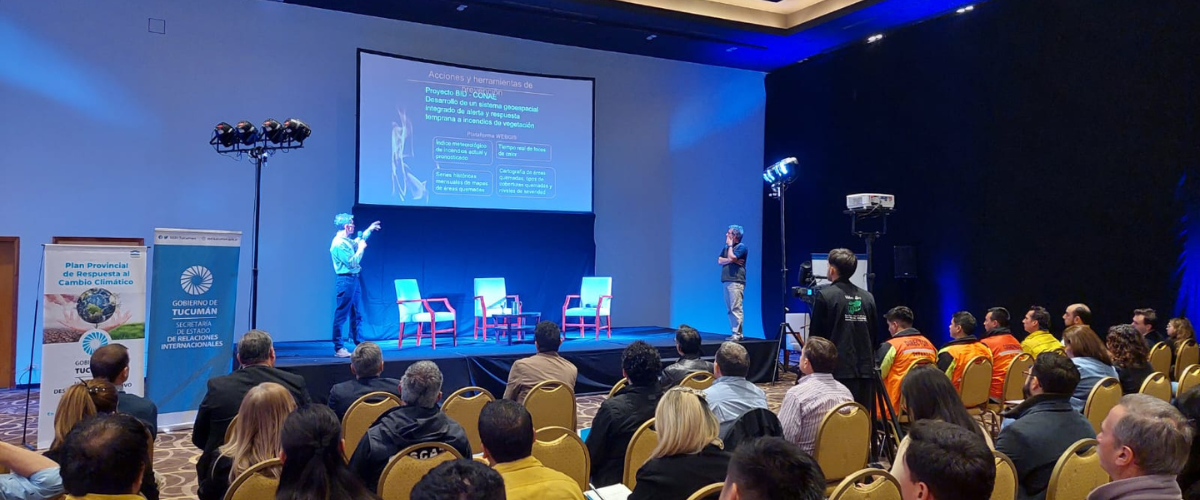Zicosur holds seminar on fire prevention

Last summer in the Southern Cone of South America ended with a record number of forest fires. In the Chilean regions of Biobío, Ñuble and La Araucanía, 45,000 hectares of land were burned and 24 people died. The Chilean government declared a "state of catastrophe".
The situation in Argentina was no less serious. In the continent's southernmost province, Tierra del Fuego, a blaze, which burned for two months, devastated 10,000 hectares of land, affecting the nature reserve Corazón de la Isla, home to several endangered species.
Beyond the seriousness of the situation, the unprecedented violence of the fires had an impact on public opinion. Thus on 17 April, Zicosur and the Province of Tucumán organised an important seminar entitled "Water management and prevention of fire management" that brought together international specialists.
At the opening of the seminar, Mariano Fernández, Pro-tempore Secretary of Zicosur, explained that the seminar was a response to the fires that had already affected not only the regions of Argentina and Chile, but also of Paraguay and Bolivia in 2021. "We wanted to hold an event that would allow experiences to be shared in the face of a phenomenon that has to do with climate change and points out the need for adaptation and mitigation policies," he said. Fernández affirmed the need to have cross-border policies in this area "because neither fire nor climate change knows the limits of countries". He concluded by saying that he hoped that the event would lead to some kind of articulation between the members of Zicosur to combat fire.
All the speakers at the seminar placed the fire issue in the context of the Climate Change process. In addition to the presence of all the local experts, great attention was paid to the international experiences that were presented. Santiago Azulay, Secretary for the Environment of the Argentinean Province of La Rioja and President of the Federal Council for the Environment (COFEMA) provided extensive information on the policies implemented by Israel. He spoke of the policies of a small country, with a largely desert territory, but which has planted millions of trees and created hundreds of water reservoirs. It is a territory that today has a large network of drones to warn of any outbreak of fire.
Especially impressive was the intervention of Marc Castellnou, inspector of the Fire Department of the Generalitat de Catalunya, who connected from the field, as he was participating in the extinction of a fire in the border area between Spain and France. He explained that the forests that cope with climatic conditions no longer exist. "With 80% less rainfall than in the 1990s, and with a large water deficit and very hot years, our forests cannot survive." He defended the necessity of forest management that adapts forests to the new climatic circumstances. "These policies may not be executed for four years, but for 40 years. Without this kind of management, the large-scale readjustment will be done through fires. Water reserves will be seriously affected". He stated that fires are no longer just a security problem, but an environmental one, especially serious because it affects the area's water capacity. He predicted that in the coming years there will be more sixth-generation fires, i.e. fires with flames at high altitudes, which spread 20 times faster than the humidity and wind indexes could make us foresee, because of the severe water deficit.







































































